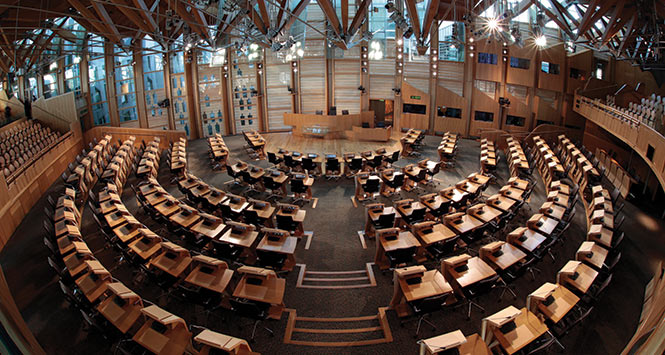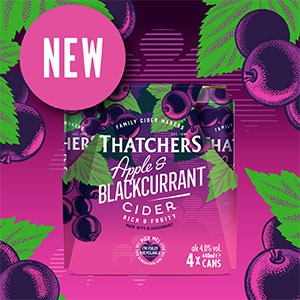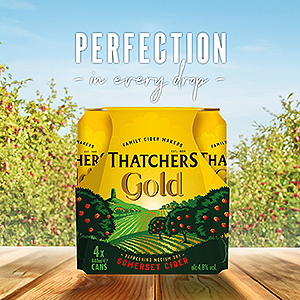First it was tobacco, then it was alcohol, and now it’s sugar that the health lobby has its eye on – and there are bound to be repercussions for convenience. So are local retailers doing enough to promote healthier products? And is it even their responsibility to help shoppers eat better?
by Kevin Scott
When the media starts calling sugar the new tobacco, there’s a sense that there may be an agenda forming. Last month’s calls by scientists for a sharp reduction in sugar intake is currently a major focus for politicians and food scientists, but as it moves up the agenda, it’s quickly becoming a major concern for local retailers too.
The publication of the ‘Scientific Advisory Committee on Nutrition (SACN) Recommendations on Carbohydrates, including Sugars and Fibre’ has called for a reduction in ‘free sugars’ added to food and drink products to be cut to 5% of daily calories – about half the current level.
When the chairman of the SACN carbohydrates and health working group says that “the clear and consistent link between a high-sugar diet and conditions like obesity and type 2 diabetes is the wake-up call we need to rethink our diet,” then it is understandable why so many people are calling for measures to change our nation’s diets.
It’s clear to all concerned that achieving this will require a significant shift in the way people eat in Scotland, combined with continuing reformulation of some products as part of a long-term, sensible strategy. Ian Wright, Director General of the Food and Drink Federation, says: “Companies’ ongoing work to lower calories in foods and drinks, including reducing sugars, and to offer a range of portion sizes and low and zero calorie options, supports [the SACN’s ambition]”.
Nothing new
The campaign against sugar is slowly but surely gaining traction. The Scottish Government has already discussed implementing legislation to remove confectionery from till points while, the week before the SACN report was published, the British Medical Association called for a 20% hike in tax on soft drinks.
It’s not just the BMA discussing sugar though. A recent report from Key Note claims that as many as 60.2% of British consumers are concerned about the high levels of sugar in confectionery. The findings, which are the result of a consumer survey commissioned by Key Note in March 2015, reveal the extent to which extensive media focus is making people think more about the levels of sugar they are consuming.
The further up the political agenda the issue gets, the more likely it is that retailers will face restrictions on what they can sell, and how they can sell it.
In Inverurie, Brian McCaughey has made fresh food the focus of his Londis store. “It was always a big part of the store, but we’ve pushed it even harder since we took over.”
So hard in fact, that Brian’s fresh sales are now worth 23% of his total sales – tobacco is 21%, which shows how much Brian’s efforts have paid off.
He admits that it’s a time-consuming process. “It takes a lot of management, but fresh has good margins. We’re in a small town so being able to do a full shop brings customers in, and we need good fresh to do that. It also helps drive basket spend.”
With a fresh offering that gives a glimpse at just what is achievable in convenience, Colin Smith’s Pinkie Farm Convenience Store recently won the Fresh & Chilled Retailer of the Year category at the SLR Rewards. Colin doesn’t keep confectionery at the tillpoint, instead stocking healthy snacks with healthier margins. “I don’t think it’s the role of a retailer to police what people buy – all we can do is give them a range to choose from.”
Colin does believe that fresh is the future though: “It’s the way the market is going, and that’s why our store has been laid out with fresh front and centre.”
John Lee, Head of Policy and Public Affairs at the Scottish Grocers’ Federation (SGF) comments: “We need more education, choice and balanced lifestyles, not another phoney war on particular types of products.
“Convenience stores are at the forefront of offering customers healthy choices – particularly through the SGF Healthy Living Programme. We also know from our corporate members that the soft drinks industry has taken significant strides in offering customers more products which are sugar free.”
Voluntary progression
Retailers can choose to do more to promote healthier products, but any restrictions on marketing soft drinks and confectionery in-store should not be mandatory. The role of the local retailer in improving the nation’s health is not as clear cut as many would have us believe. Clearly, all local retailers would be keen to help their shoppers develop and improve their diets. But experience shows that ill-informed legislation proves to be a blunt tool when tackling health issues.
Despite all of the anti-tobacco legislation of the past few years, smoking rates have fallen very little. The legislation has not been effective in achieving its stated aims. Poorly conceived solutions can often do more harm than good, creating cost for retailers without tackling the real issue in question.
Let’s be clear here: how the legislation-makers and key influencers respond to the current ‘sugar war’ could have very important repercussions for retailers.
Knee-jerk reactions
For example, NHS England Chief Executive Simon Stevens has called on retailers to raise the price of products with a high sugar content and use it to fund higher pay for staff. “Food retailers are being asked to pay a National Living Wage to their workers, so why don’t they partly fund it by higher prices for sugary fizzy drinks and other nutritionally empty, health-destroying, entirely discretionary purchases?” A strong, if baffling, opinion.
Which? Executive Director Richard Lloyd said manufacturers must consider introducing traffic light package warnings, but added: “Retailers can also do more by ensuring they act responsibly when promoting items that are high in sugar.”
There are already huge restrictions on how retailers can market tobacco and alcohol, and it looks increasingly likely that soft drinks and confectionery will be next.
In a report titled Food For Thought, the British Medical Association backs moves for a 20% tax on soft drinks. The BMA says poor diet costs the NHS around £6bn per year – more than smoking or alcohol.
In the report, Professor Sheila Baroness Hollins acknowledged that reports of this nature elicit cries of ‘nanny state’, and that the view that Governments have no place in telling people how to live their lives needed challenged. This is not a view that will go down well with retailers already dealing with the fall out of alcohol and tobacco restrictions.
The report says: “While taxing a wide range of products is an important long-term goal, a useful first step would be to implement a duty on sugar-sweetened beverages (all non-alcoholic water based beverages with added sugar, including sugar-sweetened soft drinks, energy drinks, fruit drink, sports drinks and fruit-juice concentrates) by increasing the price by at least 20%.”
Baroness Hollins said: “We know from other countries that taxation on unhealthy food and drinks can improve health outcomes, and the strongest evidence of effectiveness is for a tax on sugar-sweetened beverages.”
This view was challenged by Gavin Partington, Director General of the British Soft Drinks Association, who said evidence from other countries had shown this type of tax doesn’t work. He said: “The soft drinks industry recognises it has a role to play in supporting public health objectives and welcomes steps to encourage a balanced diet and active lifestyle but targeting single ingredients or products is misguided and unlikely to prove effective.”
Reassuringly, the UK Government seems not to be keen on such a move. In May, the Prime Minister’s Official Spokesperson said David Cameron “doesn’t believe that the right approach is to put sugar taxes on hard-working people to increase the weight and cost of their shopping baskets.”
Dennis Williams from Broadway Convenience Store believes firmly that education, not mandatory restrictions, is key. “We work with nursery and primary school children to educate them in a healthy, balanced diet. It’s not about too much sugar, it’s about exercise, and eating better overall. If you’re eating properly and eating well, what’s wrong with having a soft drink?”
Dennis also points out the work carried out already by retailers to promote healthier eating. “We have both healthier products and confectionery at the till because it’s up to individuals to choose,” he says. “Look at the work being done by the SGF Healthy Living Programme or the amount of stores moving their fruit and veg into more prominent positions.”
Brian McCaughey adds: “Healthier categories are something local retailers need to start focussing on. This is the future.”






